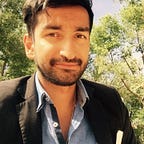Covid — remembering to forget
How collective forgetting has removed Covid from public discourse
If one were to mention the date range of 1918–1920 what global events would immediately spring to mind?
With an estimated death toll of around 100 million the Spanish flu of 1918–1920 was easily one of the most far-reaching and deadly episodes in human history, and yet the end of WW1 largely remains a lingering event in our collective consciousness for that time. It seems that the Covid pandemic is following suit.
There were updates seemingly every minute of the day, mass hysteria, rioting, anti-vaxxers, and confinement. Facemasks became ubiquitous and paranoia was at an all-time high as the death toll surged. And now, it’s almost as if all of that was a bad dream.
The supposed lasting legacy of the pandemic simply disappeared from public consciousness. Even Zoom which gained astonishing profits during the pandemic is suffering from the world moving on as it looks to cut its workforce by up to 15% due to diminishing demand for its services.
Emma Beddington in The Guardian refers to Laura Spinney’s book about the Spanish Flu which introduces the Alaskan concept of nallunguarluku, loosely translated as “pretending something didn’t happen”. Perhaps our collective forgetting of the…
